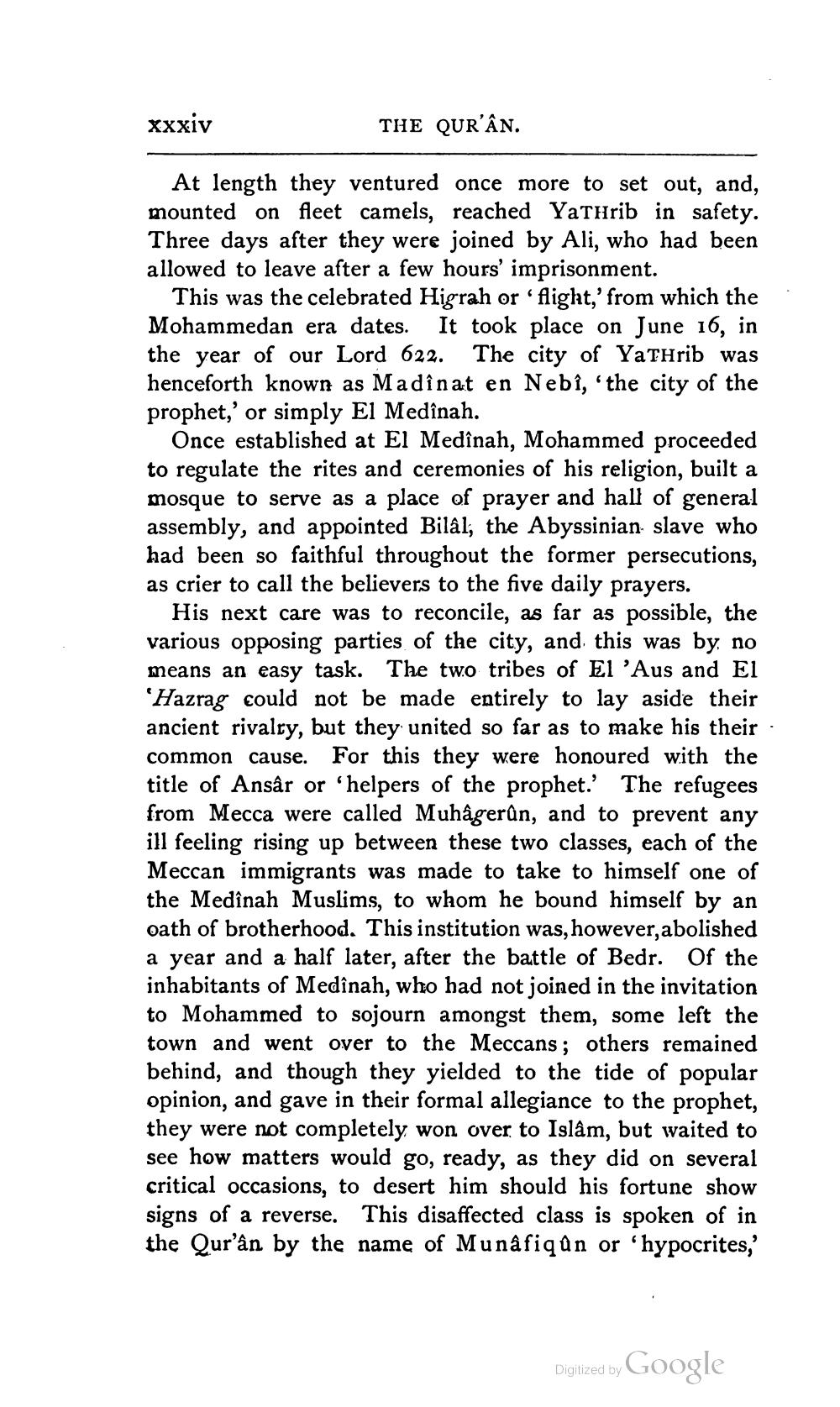________________
xxxiv
THE QUR'ÂN.
At length they ventured once more to set out, and, mounted on fleet camels, reached YaTHrib in safety. Three days after they were joined by Ali, who had been allowed to leave after a few hours' imprisonment.
This was the celebrated Higrah or 'flight,' from which the Mohammedan era dates. It took place on June 16, in the year of our Lord 622. The city of YaTHrib was henceforth known as Madinat en Nebi, 'the city of the prophet,' or simply El Medînah.
Once established at El Medînah, Mohammed proceeded to regulate the rites and ceremonies of his religion, built a mosque to serve as a place of prayer and hall of general assembly, and appointed Bilâl, the Abyssinian slave who had been so faithful throughout the former persecutions, as crier to call the believers to the five daily prayers.
His next care was to reconcile, as far as possible, the various opposing parties of the city, and this was by no means an easy task. The two tribes of El 'Aus and El 'Hazrag could not be made entirely to lay aside their ancient rivalry, but they united so far as to make his their common cause. For this they were honoured with the title of Ansâr or 'helpers of the prophet.' The refugees from Mecca were called Muhâgerûn, and to prevent any ill feeling rising up between these two classes, each of the Meccan immigrants was made to take to himself one of the Medînah Muslims, to whom he bound himself by an oath of brotherhood. This institution was, however, abolished a year and a half later, after the battle of Bedr. Of the inhabitants of Medînah, who had not joined in the invitation to Mohammed to sojourn amongst them, some left the town and went over to the Meccans; others remained behind, and though they yielded to the tide of popular opinion, and gave in their formal allegiance to the prophet, they were not completely won over to Islâm, but waited to see how matters would go, ready, as they did on several critical occasions, to desert him should his fortune show signs of a reverse. This disaffected class is spoken of in the Qur'ân by the name of Munâfiqûn or 'hypocrites,'
Digitized by
Google




